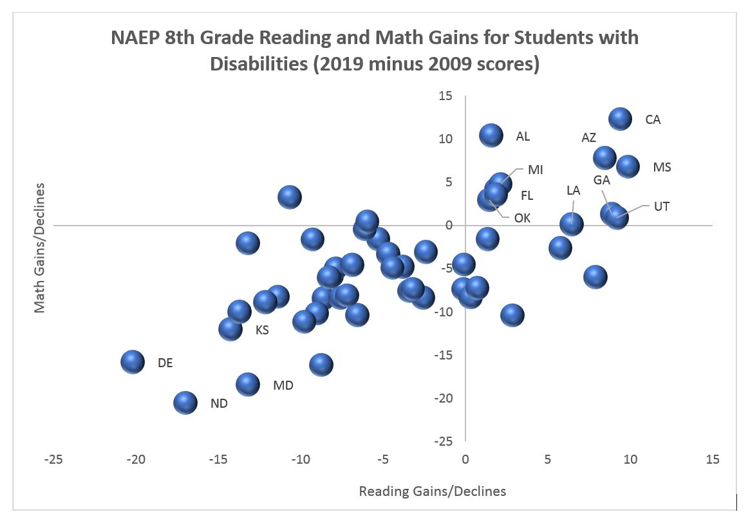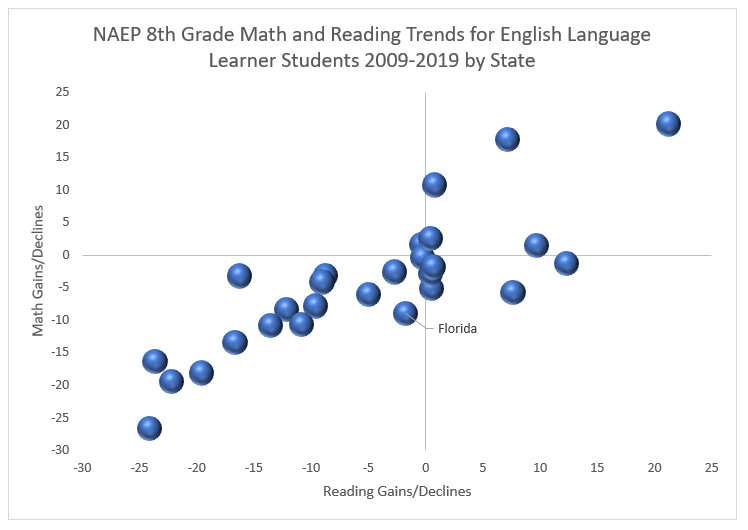 In 2016, Massachusetts voters soundly rejected a ballot proposition (Question 2) which would have allowed 12 additional charter schools per year. A recent study demonstrates how costly this decision has been, especially for special education and English language learner (ELL) students.
In 2016, Massachusetts voters soundly rejected a ballot proposition (Question 2) which would have allowed 12 additional charter schools per year. A recent study demonstrates how costly this decision has been, especially for special education and English language learner (ELL) students.
Tufts University Professor Elizabeth Setren analyzed enrollment lottery data for Boston charters in order to compare long-term outcomes for three groups of students: general education students, special education students and ELL students (see above). The random admission process provides confidence that observed differences in outcomes show the impact of the schools.
Professor Setren noted that the Boston district schools spend significantly more on special education than charters, but charter schools see much better results.
I find that charter enrollment at least doubles the likelihood that a student designated as special education or an English learner at the time of the admissions lottery loses this classification and, subsequently, access to specialized services. Yet charter enrollment also generates large achievement gains for students classified at the time of the lottery—similar to the gains made by their general-education charter classmates.
Classified students who enroll in charters are far more likely to meet a key high-school graduation requirement, become eligible for a state merit scholarship, and take an AP exam, for example. Students classified as special education at the time of the lottery are more than twice as likely to score 1200 or higher on the SAT than their counterparts at traditional public schools. English learners who enroll in charters are twice as likely to enroll in a four-year college.
Students with special education and ELL labels at the time of the enrollment lottery are more likely to discard that status in charter schools. They are also more likely to enroll in a four-year college, score proficient on state exams and take an Advanced Placement course. Notice as well that general education students also see large improvements in those same outcomes.
This study seems all the more important given the nationwide decline in NAEP scores for students with disabilities. While there are exceptions, most states saw declines in scores for both eighth-grade math and reading between 2009 and 2019.
 A similar chart for ELL students during the same period looks even worse.
A similar chart for ELL students during the same period looks even worse.
 So, Boston charter schools just might have a lesson about high expectations and inclusion. The charter school cap in Massachusetts, meanwhile, is limiting the opportunities for both general and special status students.
So, Boston charter schools just might have a lesson about high expectations and inclusion. The charter school cap in Massachusetts, meanwhile, is limiting the opportunities for both general and special status students.


